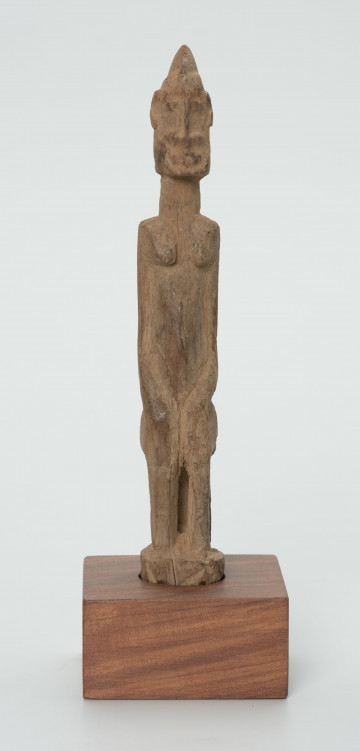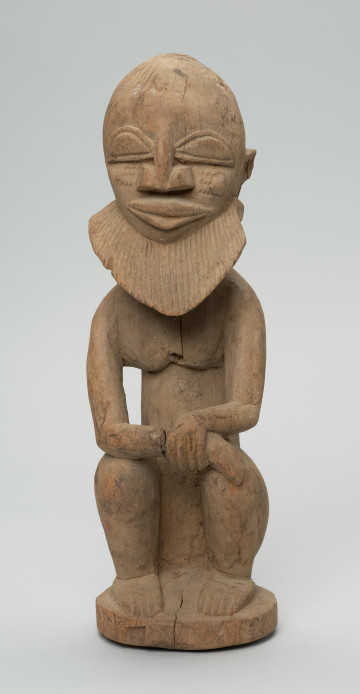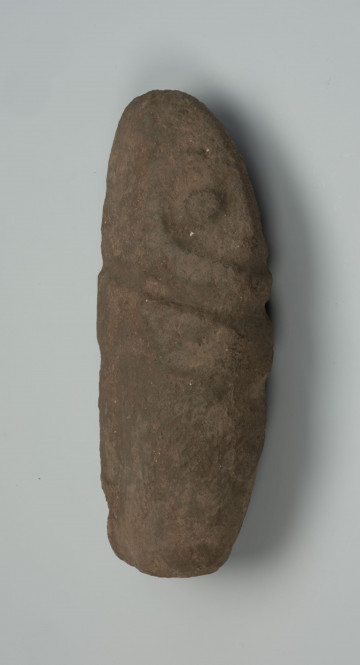
Figurine - ancestor
między 1901 — 1950
National Museum in Szczecin
Part of the collection: Collection of Dogonian art
In the Dogon, as in the rest of Africa, a woman's primary task is to bear children. Infertility is considered a particularly acute disease and the Dogon try to cure it in several ways. One method is proper scarification, or incisions on the skin which, when healed, form a desired pattern. The skin is incised on the abdomen, at the level of the navel, to produce a motif consisting of a series of short, diagonal lines, sloping alternately to the right and left. This pattern imitates the marks found on the skin of Nommo, supernatural beings whose environment is water, considered to be divine semen. Female fertility is also enhanced by the scarification in the form of four lines on the temples. The number four is a female symbol, each incision represents a vulva, and the knife cutting the skin is a metaphor for the penis. In the case of young married women who, after 2-3 years of trying, still do not have children, one way of treatment is to come to the village of Songho, located on the Plateau, during the boys' initiation related to circumcision that takes place there. In Songho, there is a famous place covered with rock paintings called Kondi Pégue. The woman's husband informs musicians playing stringed instruments called gingiru of his wife's arrival and asks them to chase away with music the evil that blocks her reproductive powers. The musicians must surprise the woman with loud, boisterous music at night, otherwise the evil powers could prepare to defend themselves. After getting rid of the blockade, the woman must return home to her husband as soon as possible. According to the Dogon, this method has an 80% success rate and was still used at the beginning of the 21st century despite the strong Islamisation of the Songho village.Currently, infertility can be treated in a hospital located in Sangha, the largest Dogon village. Every six months, a gynaecologist comes there from Bamako to deal with the problem. The woman is always treated first and only as a last resort the man.
Ewa Prądzyńska
Author / creator
Dimensions
cały obiekt: height: 27 cm, width: 4,5 cm
Object type
figure
Creation time / dating
Creation / finding place
Identification number
Location / status

między 1901 — 1950
National Museum in Szczecin

między 1951 — 2000
National Museum in Szczecin

między 1951 — 2000
National Museum in Szczecin
DISCOVER this TOPIC
Museum of King Jan III's Palace at Wilanów
DISCOVER this PATH
Educational path